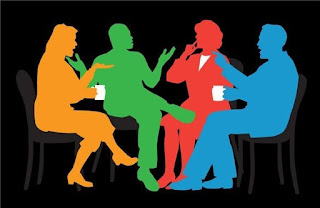 |
| Image Credits: https://york-walker.com/present-not-perfect/ |
I believe your visibility is more important than your ability.
It is good to be able to perform, deliver, be efficient in whatever task you have. But if you are not there, visible, present, then it doesn’t help both you and the parties involved. Visibility or presence is very key to success. 80% of success is being present. Someone who is available is more ready to engage than someone who has passion, great ideas, and ability but is always not available. Being present today but always absent also does not really help on building a common purpose. There has to be a commitment to be always there. In everything I commit to doing, I’d rather have someone who is always there than someone who has great ideas but always absent.
As a father and a husband, my presence at home is more valuable than I can imagine. Being there in the life of my spouse and my kids is all they ask for. I might be able to perform in all areas of life and even be seen out there as a good husband or great father but if am not present in the lives of the people who love me most, and who I can’t delegate my responsibility to someone else, then it’s all in vain. This has been my learning curve, how do I be present, not just physically there but fully there for my family. To my family, it’s not about how much I make, do or able to do, though that’s key, but at the end of the day, are they my priority.
 |
Image Credits: http://productivityist.com/priority/ |
In all the work we have done in Africa Youth Leadership Forum, AYLF, it’s always been based on those who are available. Those who commit to putting in their time. I believe these are the people who prioritize what AYLF is doing. There could be those who are not available due to geographical issues, this is a different case. We have had guys who have come with amazing ideas on how we can push AYLF forward, how we can do this and that differently. Great ideas and wonderful thoughts. But if they are not available, we have always simply moved on with how we do our things and relied on those available to keep the engine running.
Most ideas and projects have not succeeded because those who have the ideas have not prioritized them to a point where they put their time and resource on them. All they have done is talk and talk about them but not really give themselves. The greatest gift you can give to your friends or projects or ideas is to give yourself. For God so loved the world that He gave… Jesus left the glory in heaven and came down to be with us. To show us how to live life and how to follow Him. This was the ultimate gift to humanity. This ultimate gift calls for sacrifice. For any good thing to happen, we have to be willing to sacrifice. Those who have been involved in moving the needle on any issue clearly understand this. Unless someone chooses to give themselves to an idea, project, friendship, all will be in vain. Jesus calls on us to give of ourselves.
 |
Image Credits: https://www.youtube.com/attribution_link?a=Idh_DWk-oKI&u=/watch?v=IT2Dxz5-eSk&feature=share |
As I write this, am reminded of the amazing ideas that I have had but since I couldn’t make time for them they fell off. They never materialized. I wonder what are those ideas and projects that have also died because you couldn’t make time for them. Right now, I’m part of a team that is involved in anti-corruption efforts but since people are not available to meet, things seem to be stalling. Some of the team members are already giving up. As a leader, what are those ideas and projects that never worked because you were not available or visible? Or those who were visible changed the idea into something else.
As a following of Jesus, how present are you to move the needle? Are you just full of great ideas and thoughts but you are not there to see them come to fruition?
If this resonates with you, seek to be visible, present, available to the things you value and prioritize. Look for a small community of friends who you can learn to do this together with… Being accountable to a few and practicing with a few. It’s about building a community of friends to share each other’s journey of being present. You have to be deeply committed to each other and desire to see each other grow in this journey. You have to create a support, encouragement and accountability platform for each other. The community has to be a small as possible so that there is active engagement by all involved.
Find a community around you and see if these conversations make sense to you…
 |
| Image Credits: http://christchurchcockfosters.co.uk |
By Gabriel Achayo.












